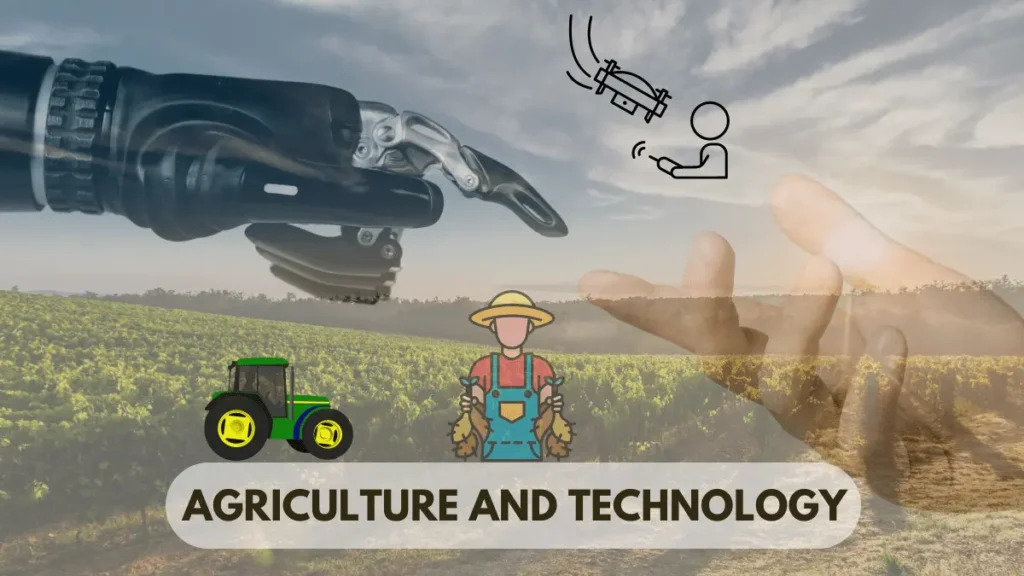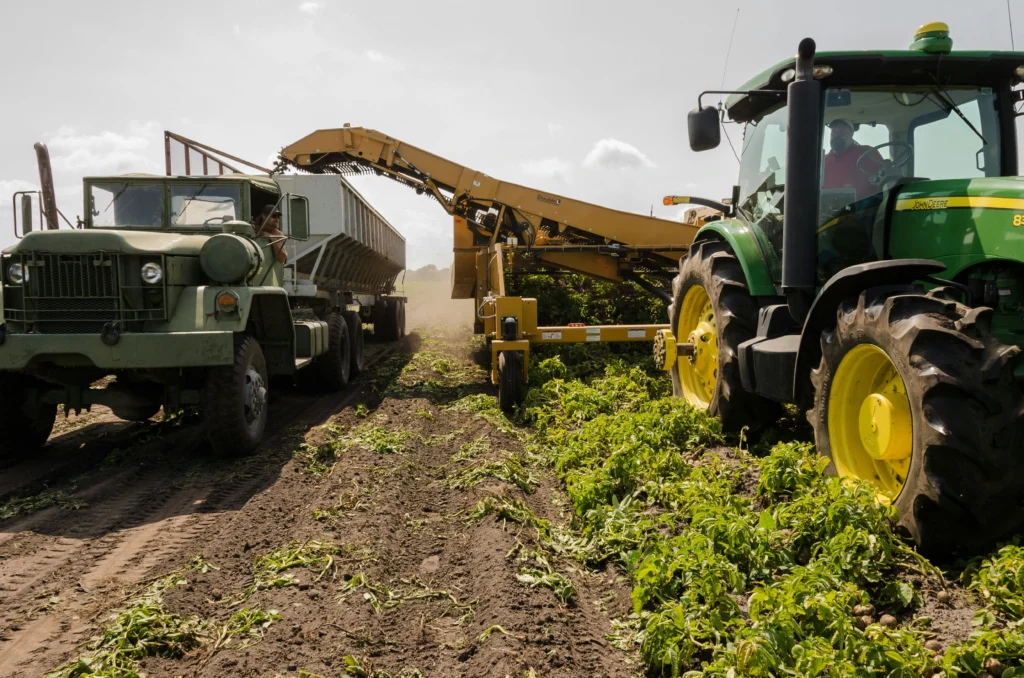We have seen a drastic growth in agriculture and technology over the past decades; in the present era, technology’s role in agriculture is impacting farmers worldwide. With the increasing demand for food at an unexpected rate, farmers rely on technology.

Table of Contents
Modern Agricultural Technologies
Today, agriculture and technology have proven to be the best allies in the agriculture sector, with countless technologies available in the market helping farmers put their minds at ease.
- Optimize Resource Use: In agriculture, excess usage of fertilizers, pesticides, and water costs farmers dearly. In such cases, precision agriculture is a technique that helps farmers manage their resources efficiently.
- Automation and Robotics: Farmers used to spend days spraying land and harvesting crops, which was a complete waste of crucial time, and farmers had to put extra effort into roaming around in the field. Since technology has entered agriculture, farmers have started using drones for such purposes.
- Biotechnology: Biotechnology is another area of the bioengineered sector in which genetic methods are applied to develop crops resistant to pests, diseases, and climate change.
- Digital technologies: The availability of digital technologies enabled farmers to monitor the changes took place in weather conditions and market trends.
The Benefits of Agriculture Technology
The engagement of farming with technology has brought many benefits to farmers.
- Enhance Productivity and Efficiency: A significant benefit evident by agricultural technology is producing more food on less land. It can be achieved by replacing labour with technology such as tractors, combined harvesters, and well-organized farming systems.
- Improved Food Security: Farmers must rely on bio-engineered crops to ensure food security in the coming days. Engineered crops tend to produce high yields in rough climate conditions and are less likely to be affected by pests and diseases.
- Environmental Sustainability: Technologies like no-till farming, cover cropping, and precision farming help keep soil healthy from harmful effects like erosion and enhance water quality.
- Economic Benefits: Choosing technology as their helper in the field, farmers now produce more food to meet the market’s supply chain demand. Technology has made it so much easier for farmers. Now, they can provide better living standards for their families.
Challenges in Agricultural Technologies
While enjoying the benefits of agricultural technology, it also comes with some limitations and challenges.
- Cost: Modern technology, such as tractors and combined harvesters bearing high expenses, makes it difficult for small-scale farmers to buy. Even small technologies like precision farming systems are expensive to apply.
- Accessibility: Technology is a sector where machines evolve to the latest version daily. Because help and support are unlikely to be available in underdeveloped places to meet maintenance requirements, farmers in some regions cannot reap the fruitful benefits of technology.
- Environmental and Social Impacts: While technology is shaping the future of agriculture, there is also a negative impact that technology providers often suppress. These include loss of employment by poor farmers, harmful impacts on climate due to pesticide usage, and harm to biodiversity.
- Technological Limitation: Technology is developing unexpectedly to fulfil high production demand. While overlooking the production benefits, it needs to understand the negative impact on the employment of poor laborers and the adverse effect of fertilizers on the climate.

Conclusion
In the end, agriculture and technology are good companions. Technology has brought many advantages to the agriculture sector regarding yield, food security, productivity, and environmental sustainability. Despite this, it is still undergoing severe challenges and limitations, such as service providers, training, and customer support.
As we can see, technology is developing daily to tackle farmers’ difficulties. They also have to ensure that technology is friendly to biodiversity because it plays a crucial role in food security and ecosystem functions.
What is the impact of technology on agriculture?
Technology has reshaped traditional framing methods by increasing productivity, minimizing crop loss, and providing numerous climate benefits. Although new technology has some challenges, it also offers a promising future.
New technologies in agriculture 2024?
Tools such as drones, autonomous harvesters, blockchain, and IoT devices in 2024 will leave positive footprints in the future.
